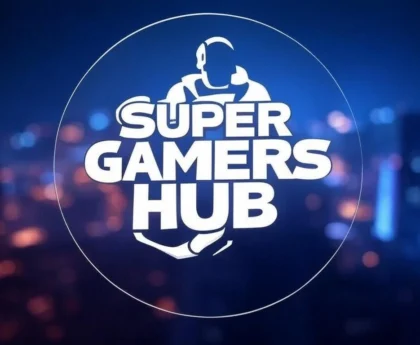The inclusion of e-sports in the Olympics has become a subject of significant global discussion. With the growing popularity of competitive gaming, the question arises: should e-sports, a digital phenomenon, find a place alongside traditional Olympic sports? As gaming transcends being a mere recreational activity to a global competitive spectacle, the case for its Olympic inclusion gains strength.
The Rise of E-Sports
E-sports, or electronic sports, refer to organized, competitive gaming where individuals or teams compete in video game tournaments. Titles like League of Legends, Dota 2, Counter-Strike: Global Offensive, and Fortnite have garnered millions of players and spectators worldwide. By 2024, the global e-sports industry is valued at over $1.6 billion, with a viewership exceeding 500 million.
E-sports tournaments often attract more viewers than traditional sporting events. For example, the 2018 League of Legends World Championship finals drew over 99.6 million viewers, rivaling the Super Bowl. This explosive growth highlights the potential for e-sports to be recognized on the world’s biggest athletic stage.
E-Sports and Olympic Values
The Olympics celebrate excellence, respect, and fair play—values that are increasingly reflected in e-sports. Here are some reasons e-sports align with these principles:
- Skill and Strategy: E-sports athletes demonstrate remarkable cognitive abilities, strategic thinking, reflexes, and teamwork—attributes akin to traditional sports.
- Global Appeal: Like the Olympics, e-sports unite players and fans from diverse cultures and countries, fostering global camaraderie.
- Inclusivity: E-sports transcend physical barriers, allowing athletes of different genders, abilities, and ages to compete on equal footing.
However, challenges remain, particularly in adhering to anti-doping regulations, maintaining sportsmanship, and standardizing the rules across various games.
Steps Toward Inclusion
E-sports are gradually making inroads into the Olympic movement. The following milestones illustrate this progress:
- Asian Games Inclusion: E-sports debuted as a demonstration event in the 2018 Asian Games and gained medal status in the 2022 Asian Games in Hangzhou.
- Olympic Virtual Series (OVS): Introduced in 2021, the OVS featured virtual sports such as baseball, cycling, rowing, and motorsport, blending digital and physical elements.
- International Olympic Committee (IOC) Support: The IOC has hosted discussions on integrating e-sports, emphasizing games that simulate traditional sports like FIFA and NBA 2K.
Arguments For and Against
For Inclusion:
- Youth Engagement: E-sports can attract younger audiences, revitalizing Olympic viewership.
- Economic Potential: The lucrative e-sports market can boost sponsorships and revenues.
- Technological Integration: Incorporating e-sports aligns with the digital evolution of global culture.
Against Inclusion:
- Game Selection: The diversity of e-sports titles poses challenges in determining which games qualify.
- Violence in Games: Some popular e-sports titles involve graphic violence, conflicting with Olympic ideals.
- Physical Activity: Critics argue that e-sports lack the physical exertion traditionally associated with sports.
The Future of E-Sports as a Billion-Dollar Industry
The future of e-sports is undeniably bright. With advancements in technology such as augmented reality (AR) and virtual reality (VR), the industry is poised to create even more immersive experiences for players and viewers. High-speed internet connectivity and 5G adoption will further enhance gameplay and streaming capabilities, expanding global reach.
As brands and investors increasingly recognize the marketing potential of e-sports, sponsorship deals, advertising revenue, and merchandise sales are expected to skyrocket. Educational institutions are also beginning to offer scholarships and programs in e-sports, further legitimizing it as a career path.
Moreover, the integration of blockchain and NFTs (non-fungible tokens) in gaming could redefine digital ownership and in-game economies, creating new revenue streams. Analysts project that by 2030, the e-sports industry could surpass $5 billion in revenue, cementing its position as a mainstream entertainment powerhouse.
Biggest E-Sports Tournaments
E-sports tournaments have become global spectacles, drawing millions of viewers and featuring substantial prize pools. Here are some of the biggest e-sports tournaments, complete with hyperlinks to their official websites, social media, and YouTube channels.
1. The International (Dota 2)
- Game: Dota 2
- Organized By: Valve Corporation
- Prize Pool: Over $40 million (2021, the highest to date)
- Official Website: The International
- Social Media: Twitter, Facebook
- YouTube: Dota 2 YouTube Channel
2. League of Legends World Championship (LoL Worlds)
- Game: League of Legends
- Organized By: Riot Games
- Prize Pool: Typically exceeds $2 million
- Official Website: LoL Esports
- Social Media: Twitter, Facebook
- YouTube: LoL Esports YouTube Channel
3. Fortnite World Cup
- Game: Fortnite
- Organized By: Epic Games
- Prize Pool: $30 million (2019)
- Official Website: Fortnite Competitive
- Social Media: Twitter, Facebook
- YouTube: Fortnite YouTube Channel
4. PUBG Global Championship
- Game: PlayerUnknown’s Battlegrounds (PUBG)
- Organized By: PUBG Corporation
- Prize Pool: Over $4 million in 2022
- Official Website: PUBG Esports
- Social Media: Twitter, Facebook
- YouTube: PUBG Esports YouTube Channel
5. Call of Duty League Championship
- Game: Call of Duty
- Organized By: Activision Blizzard
- Prize Pool: $2.5 million (2023)
- Official Website: Call of Duty League
- Social Media: Twitter, Facebook
- YouTube: Call of Duty League YouTube Channel
6. CS:GO Major Championships
- Game: Counter-Strike: Global Offensive
- Organized By: Valve Corporation
- Prize Pool: $1.25 million per Major
- Official Website: CS:GO Blog
- Social Media: Twitter, Facebook
- YouTube: CS:GO YouTube Channel
7. Valorant Champions Tour (VCT)
- Game: Valorant
- Organized By: Riot Games
- Prize Pool: $1 million+ per championship
- Official Website: Valorant Esports
- Social Media: Twitter, Facebook
- YouTube: Valorant Esports YouTube Channel
8. Overwatch League (OWL) Grand Finals
- Game: Overwatch
- Organized By: Blizzard Entertainment
- Prize Pool: $1.5 million (2023 Grand Finals)
- Official Website: Overwatch League
- Social Media: Twitter, Facebook
- YouTube: Overwatch League YouTube Channel
9. Evo Championship Series (Evo)
- Games: Fighting games like Street Fighter, Tekken, and Super Smash Bros.
- Organized By: Sony Interactive Entertainment
- Official Website: Evo
- Social Media: Twitter, Facebook
- YouTube: Evo YouTube Channel
10. Arena of Valor International Championship (AIC)
- Game: Arena of Valor (AoV)
- Organized By: Tencent Games
- Prize Pool: Over $2 million
- Official Website: Arena of Valor Esports
- Social Media: Twitter, Facebook
- YouTube: Arena of Valor YouTube Channel
11. Free Fire World Series (FFWS)
- Game: Free Fire
- Organized By: Garena
- Prize Pool: Over $2 million
- Official Website: Free Fire Esports
- Social Media: Twitter, Facebook
- YouTube: Free Fire YouTube Channel
12. Rocket League Championship Series (RLCS)
- Game: Rocket League
- Organized By: Psyonix (Epic Games)
- Prize Pool: $6 million annually
- Official Website: Rocket League Esports
- Social Media: Twitter, Facebook
- YouTube: Rocket League YouTube Channel
13. Hearthstone World Championship
- Game: Hearthstone
- Organized By: Blizzard Entertainment
- Prize Pool: $500,000 annually
- Official Website: Hearthstone Esports
- Social Media: Twitter, Facebook
- YouTube: Hearthstone YouTube Channel
14. Apex Legends Global Series (ALGS) Championship
- Game: Apex Legends
- Organized By: Electronic Arts (EA)
- Prize Pool: Over $2 million
- Official Website: ALGS
- Social Media: Twitter, Facebook
- YouTube: Apex Legends YouTube Channel
These tournaments showcase the diversity and global appeal of e-sports, ranging from traditional PC-based games to mobile and console platforms. They represent the pinnacle of competitive gaming, drawing fans and players from across the world.
A Balanced Approach
To address these concerns, the IOC could adopt a hybrid model, focusing on e-sports titles that replicate physical sports. Additionally, promoting ethical gameplay, inclusivity, and health awareness within the e-sports community would align the discipline with Olympic values.
The inclusion of e-sports in the Olympics represents a convergence of tradition and modernity. While challenges exist, the benefits of embracing this digital evolution are immense. By integrating e-sports, the Olympics can maintain relevance for future generations, showcasing not just physical prowess but also the intellectual and strategic excellence that defines the spirit of competition.




